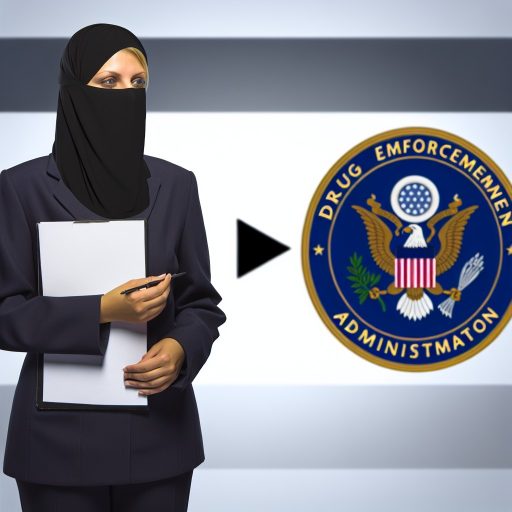Introduction
Brief overview of the role of School Resource Officers (SROs) in schools
School Resource Officers (SROs) are law enforcement officers.
They are assigned to work in schools to ensure a safe and secure learning environment for students and staff.
Misinformation about the function and impact of School Resource Officers
- One common myth about SROs is that they arrest students for minor infractions.
- Another misconception is that SROs only enforce discipline and do not build positive relationships with students.
- Some people believe SROs contribute to the school-to-prison pipeline by disproportionately targeting minority students.
It is essential to separate myths from facts.
This helps to understand the true role and impact of School Resource Officers in schools.
Myth about School Resource Officers being only there to arrest students
- Many people believe that School Resource Officers (SROs) are primarily focused on law enforcement.
- This misconception perpetuates the idea that SROs only exist in schools to arrest students.
However, the reality is quite different.
SROs have a much broader set of responsibilities beyond just enforcing the law.
Clarifying the misconception about SRO roles
It is important to address the myth that SROs are solely there to act as law enforcement officers.
One of their roles is to ensure the safety and security of the school environment.
Their responsibilities extend far beyond just making arrests.
Supporting evidence and practical examples
SROs also serve as mentors to students.
They provide guidance and support to help students navigate the challenges of adolescence.
The officers often engage in educational initiatives.
These include teaching classes on topics such as drug awareness and cyberbullying.
SROs actively work to build relationships with students, staff, and parents.
They help create a positive and welcoming school community.
Comprehensive and supportive approach of SROs
By taking a holistic approach to their duties, SROs contribute to the overall well-being of students.
They collaborate with school administrators and counselors.
This teamwork addresses underlying issues affecting student behavior and academic performance.
Ultimately, SROs play a vital role in fostering a safe and supportive learning environment for all members of the school community.
Myth 2: SROs contribute to the school-to-prison pipeline
One of the common misconceptions about School Resource Officers (SROs) is that they contribute to the school-to-prison pipeline.
Transform Your Career Today
Unlock a personalized career strategy that drives real results. Get tailored advice and a roadmap designed just for you.
Start NowThis belief is often rooted in the idea that SROs disproportionately target minority students.
It leads to increased interactions with law enforcement and higher rates of incarceration.
Disproportionate targeting of minority students
While it is true that there have been cases where SROs have unfairly targeted minority students, this is not always the case.
Not all interactions between SROs and students result in negative outcomes.
Many SROs work proactively to build positive relationships with students and prevent conflicts before they escalate.
- SROs undergo training on cultural sensitivity and de-escalation techniques to minimize bias in their interactions with students.
- Many SROs participate in school programs aimed at mentoring and supporting at-risk youth, including minority students.
- Studies have shown that schools with SROs in place have lower rates of violent incidents and drug-related offenses.
Positive impact of SROs on school safety and student outcomes
Research has shown that SROs can have a positive impact on school safety and student outcomes.
- SROs help deter criminal activity on school grounds by providing a visible law enforcement presence.
- Many SROs work collaboratively with school administrators and mental health professionals to address behavioral issues and prevent potential conflicts.
- Studies have found that schools with SROs report higher levels of safety and lower rates of disciplinary incidents compared to schools without SROs.
It is crucial to address any instances of bias or disproportionate targeting by SROs.
However, it is essential to recognize the positive impact they can have on school safety and student outcomes.
This impact occurs when SROs are properly trained and integrated into the school community.
Gain More Insights: Training Requirements for Campus Security Officers
Myth 3: SROs Are Not Adequately Trained to Work in Schools
- Address concerns about the training and qualifications of SROs
- Highlight the specialized training programs that many SROs undergo to effectively serve in a school setting
One common misconception about School Resource Officers (SROs) is that they are not adequately trained to work in schools.
This myth often stems from a lack of understanding of the rigorous training and qualifications that SROs receive before being assigned to a school.
Training and Qualifications of SROs
SROs are typically law enforcement officers who receive specialized training to work specifically in a school environment.
They undergo extensive background checks, psychological evaluations, and interviews to ensure they are well-suited for the role.
Additionally, many SROs have previous experience working with youth or in educational settings, further preparing them for their responsibilities as school-based officers.
Specialized Training Programs
Many SROs participate in specialized training programs that focus on topics such as conflict resolution, de-escalation techniques, adolescent development, and school law.
These programs equip SROs with the skills and knowledge necessary to navigate the unique challenges of working in a school environment.
Additionally, SROs often receive ongoing training and professional development to stay current on best practices and emerging trends in school safety and security.
The notion that SROs are not adequately trained to work in schools is a myth.
SROs undergo rigorous training and qualifications to ensure they are prepared to effectively serve in a school setting.
Transform Your Career Today
Unlock a personalized career strategy that drives real results. Get tailored advice and a roadmap designed just for you.
Start NowBy highlighting the specialized training programs that many SROs undergo, we can debunk this myth.
This recognition shows the valuable role that SROs play in enhancing school safety and building positive relationships with students.
You Might Also Like: Common Challenges Faced by TSA Officers on Duty
School Resource Officers Serve as Positive Role Models for Students
- Building trust and relationships between SROs and students is crucial.
- SROs often make a significant impact on students’ lives through mentorship and support.
- Stories of SROs going above and beyond to help students showcase their positive influence.
Students look to adults for guidance and support.
This need is especially strong during their formative years in school.
School Resource Officers (SROs) play a vital role in providing guidance and support.
They serve as positive role models for students to look up to.
The Importance of Building Trust and Relationships
Building trust and relationships between SROs and students is essential.
This trust helps create a safe and supportive school environment.
When students feel comfortable and secure around SROs, they seek help and guidance.
Trust is built through consistency, communication, and mutual respect.
Impactful Stories of SROs Making a Difference
Many heartwarming stories show SROs going above and beyond their duty.
They provide emotional support during tough times.
SROs also mentor students towards a brighter future.
These actions shape young minds and foster positive community relationships.
School Resource Officers serve as positive role models by building trust and relationships.
They make a difference in students’ lives through mentorship and support.
Their presence focuses not only on law enforcement but also on nurturing a safe environment.
Delve into the Subject: Benefits of a Counterterrorism Specialist Career

Fact 2: SROs play a crucial role in school safety and emergency preparedness
School Resource Officers (SROs) are essential for ensuring safety and security in schools.
Transform Your Career Today
Unlock a personalized career strategy that drives real results. Get tailored advice and a roadmap designed just for you.
Start NowThey play a crucial role in preventing potential threats effectively.
Additionally, SROs respond promptly to emergencies that may arise.
Let us explore the vital role of SROs in maintaining a safe learning environment.
Preventing school emergencies
- SROs are trained professionals equipped to identify and assess threats early.
- They collaborate with school administrators and law enforcement to create safety plans.
- Through threat assessments and proactive measures, SROs help prevent violence or crimes on campus.
Responding to school emergencies
- SROs receive specialized training for emergencies like active shooter scenarios or natural disasters.
- In crises, they often act as first responders, enabling a swift, coordinated reaction.
- They cooperate with law enforcement to contain threats, evacuate students and staff, and secure the premises.
Examples demonstrating SRO impact
- An SRO prevented a school shooting by identifying and arresting a student carrying a weapon.
- During severe weather, an SRO evacuated students to safety and coordinated with authorities.
- The presence and visibility of an SRO on campus deterred disruptions and maintained peace.
SROs are vital in protecting students, staff, and faculty in schools.
Their proactive prevention and swift emergency responses make them indispensable.
Discover More: CBP Officer Role in Combating Illegal Immigration
Clarifying the Role and Impact of School Resource Officers
It is important to debunk myths surrounding School Resource Officers (SROs).
Examining the facts helps clear misunderstandings about their duties.
SROs are not meant to excessively discipline students.
Instead, they work to enhance school safety and build positive relationships.
Contrary to popular misconceptions, SROs receive training on communication techniques.
This training also includes how to de-escalate tense situations effectively.
By understanding the true role and impact of SROs, schools can become safer.
It also fosters a more supportive learning environment for all students.
Readers are encouraged to educate themselves further on SRO responsibilities.
Awareness of their contributions helps promote a positive school atmosphere.
Let’s work together to ensure SROs fulfill their purpose.
They should focus on promoting safety while supporting students effectively.
Additional Resources
Child Abuse and Neglect Reporting in Delaware – DSCYF – State of …
Extended Myths & Facts About Inclusionary Practices in Washington
Transform Your Career Today
Unlock a personalized career strategy that drives real results. Get tailored advice and a roadmap designed just for you.
Start Now[E-Books for Sale]
The Big Book of 500 High-Paying Jobs in America: Unlock Your Earning Potential
$19.99 • 500 High-Paying Jobs • 330 pages
Explore 500 high-paying jobs in America and learn how to boost your career, earn more, and achieve success!
See All 500 High-Paying Jobs of this E-Book
1001 Professions Without a Degree: High-Paying American Jobs You Can Start Now
$19.99 • 1001 Professions Without a Degree • 174 pages
Discover 1001 high-paying jobs without a degree! Unlock career tips, skills, and success strategies for just $19.99!




